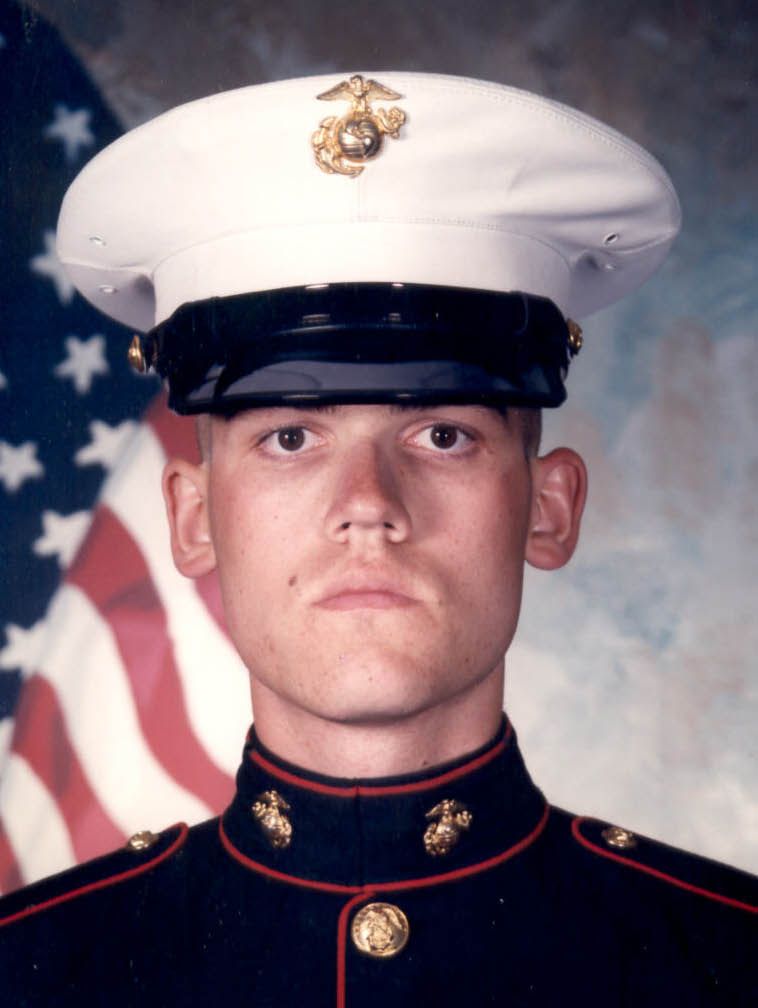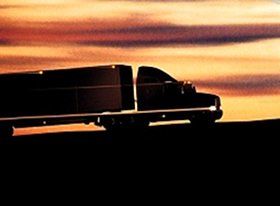Post Your Best Truck Driver Safety Habits Here:
Topic 9327 | Page 1
Doing a pre-trip every single time seems a waste. But the idea that it's all the same as last time is the point! Same-ol, same-ol all the time. But wait! This belt seems looser today. Or, isn't there supposed to be a cotter pin on that nut? Gotta check these things out.
Quick story:
Knott's roller coaster
OOS:
When a violation by either a driver or company is confirmed, an out-of-service order removes either the driver or the vehicle from the roadway until the violation is corrected.

For me it's swing her wide.
I have gotten into the habit of anytime I make a turn I don't have memorized, I swing it wide. Could care less if the 4 wheelers like it or not.
I deliver to a lot of businesses in the city. So as I roll up on most lights I split both lanes with my signal light on. At the last second I swing it to the out side lane so my trailer will stay in the inside lane until my cab has started to make the turn. (beats the tar outta getting hung up and waiting for them to back up when their 20 deep). Even go so far as to stop short a hundred feet, let the traffic in front of me clear and approach the turn in the oncoming lane.
Look at the poles on corners while sitting at stop lights/signs. Most (9 outta 10) have been rubbed at some point.
I have gotten hung up a couple of times early on and these methods have kept my trailers looking the same as when I got them.
.02

Good stuff MG.
Admittedly, like Errol pointed out, a full pre-trip like they teach in school is not necessary every single time before a trip - not that MG was alluding to that, and even if she was, that's cool. Whatever works and keeps folks safe. However, some things can be done in an efficient manner. There are certain things that you shouldn't skimp on though.
Quick and easy one to remember, might sound obvious, but .... ALWAYS lower your landing gear first before doing anything else when dropping a trailer, that way you'll never DROP a trailer.
Also, as MG pointed out, routine is king. I do the same thing, over and over again, each time I start my day, change loads in the middle of the day, and finish my day. I still am looking to improve my routine to make it more efficient.
One more safety habit to share, and a very critical one that unfortunately I don't see many other drivers doing, is an air leak test. I run linehaul and pull doubles , so granted I have more connections that could be susceptible to an air leak. EVERY time before I drive off with my rig, I'm doing the routine air leak test. I don't wait the full few minutes like school taught, and that is OK in order to just make sure that I don't have any noticeable leaks. I'll throw the tractor in gear, shut it down, and push in both the trailer and tractor parking brake buttons, and wait for the system to stabilize. Then I'll put my foot on the brake pedal and hold it till I'm sure I'm not loosing air. This usually only takes 10 seconds, if even that. There are many times that I've caught a leak in my service line because I took the time to do the test. Scary to think that some guys don't even check to see if there are any leaks in their emergency line. Air is your friend, you don't want a major leak.
Linehaul:
Linehaul drivers will normally run loads from terminal to terminal for LTL (Less than Truckload) companies.
LTL (Less Than Truckload) carriers will have Linehaul drivers and P&D drivers. The P&D drivers will deliver loads locally from the terminal and pick up loads returning them to the terminal. Linehaul drivers will then run truckloads from terminal to terminal.Doubles:
Refers to pulling two trailers at the same time, otherwise known as "pups" or "pup trailers" because they're only about 28 feet long. However there are some states that allow doubles that are each 48 feet in length.
Dm:
Dispatcher, Fleet Manager, Driver Manager
The primary person a driver communicates with at his/her company. A dispatcher can play many roles, depending on the company's structure. Dispatchers may assign freight, file requests for home time, relay messages between the driver and management, inform customer service of any delays, change appointment times, and report information to the load planners.OOS:
When a violation by either a driver or company is confirmed, an out-of-service order removes either the driver or the vehicle from the roadway until the violation is corrected.

This tip won't exactly help you, per say. But if everyone starts doing it, you'll also reap the benefits.
If your trailer develops an issue, or you discover one it had that couldn't be found by your typical pre-trip, report it. Don't just do your drop&hook to leave it for the next driver. Get it fixed.

This tip won't exactly help you, per say. But if everyone starts doing it, you'll also reap the benefits.
If your trailer develops an issue, or you discover one it had that couldn't be found by your typical pre-trip, report it. Don't just do your drop&hook to leave it for the next driver. Get it fixed.
Driver, you're one of the good ones! I'll second your admonition!
Dm:
Dispatcher, Fleet Manager, Driver Manager
The primary person a driver communicates with at his/her company. A dispatcher can play many roles, depending on the company's structure. Dispatchers may assign freight, file requests for home time, relay messages between the driver and management, inform customer service of any delays, change appointment times, and report information to the load planners.
This tip won't exactly help you, per say. But if everyone starts doing it, you'll also reap the benefits.
If your trailer develops an issue, or you discover one it had that couldn't be found by your typical pre-trip, report it. Don't just do your drop&hook to leave it for the next driver. Get it fixed.
I agree with this wholeheartedly! I work on a dedicated account and we use the same trailers over and over....I know if there is a problem with one we have in the fleet of trailers and I ignore what might be considered a minor issue, I could very well end up with the same trailer again and now it is a major issue! My motto is, be kind to your fellow drivers and maybe, just maybe, they will do the same in return! 

In school we were taught when picking up a trailer to use the acronym PAL (Hook your pin, connect your airlines, raise your landing gear) and when leaving a trailer LAP (lower landing gear, disconnect airlines, unhook pin). I always try to do this because one time I was in a hurry and frustrated to boot, and pulled my airlines completely off of my tractor!!!  I'm not sure if all driving schools teach this so that's why I shared this handy hint!!!
I'm not sure if all driving schools teach this so that's why I shared this handy hint!!!

SO-o! Since you guys brought it up: I do a pre-trip, inter-trip, and post trip inspection every day. The pre-trip is my most thorough inspection of the day. I check and tires each time and throughout the day, all three inspections add up to one complete inspection ...if that makes sense. If I missed checking the hub seals at the beginning of my shift, then I'm sure to do it on the next go-round. I do a full brake check at the end of the day, when I have a little more time. I drive the same tractor almost every day, so I know my machine pretty well. Every time I hook to a new trailer (I might hook and drop as many as 6 new trailers in one day) I always do a good walk-around before my 5 L's.
The 5 L's merely help me assure that I don't leave the yard or pull away from my tractor without having checked those 5 basic things but they don't replace my inspections in any way.
More! More!
-mountain girl

HOS:
Hours Of Service
HOS refers to the logbook hours of service regulations.
Correction: I check oil and tires each time ...
I think it's good to be inspecting your tractor-trailer and equipment constantly.
Part of the purpose of memorizing the pre-trip is so that you have those items in mind in order to develop a critical eye for spotting any flaws as early as possible - to prevent issues from declining, long before they become dangers.
-mountain girl

HOS:
Hours Of Service
HOS refers to the logbook hours of service regulations.New Reply:
New! Check out our help videos for a better understanding of our forum features

















Preview:
This topic has the following tags:
Pre-trip inspection (PTI) Safe Driving Tips







 TT On Facebook
TT On Facebook
I'm finding that doing things exactly the same way, every single solitary time, is what's keeping me out of trouble and safe. It all started with memorizing my pre-trip to a "T."
Because we are often in a rush, we have to keep up with these routines.
Example: At my company, if you pull away from the dock without a lock on your trailer, it's an automatic termination. The last thing you want is a loader on a forklift, riding along with you, with an open door, into the city, (or wherever). If you climbed onto the dock and locked your trailer, you know you must have seen the inside of the trailer and no one is in it and your load is secure. You have to have your landing gear up or down, depending on whether you're hooking or dropping. Your lines must be attached. At my company, if your drop a trailer on the street, you're terminated, so you must check your locking jaws and kingpin. Our kingpins pop out when the locking jaws are open.
So ...as I'm walking briskly from rear to front, about to leave, for me, it's my own acronym I made up, to make sure I checked these things, every single solitary time I get out and then back into my truck. It's worked. I've caught myself missing something and I can correct it before it's an issue.
I stick my arm out emphatically and say this out loud, as I'm walking back to my driver's side door:
"LOCK!" (It's on and I checked my load)
LANDING GEAR! (It's up or down, depending on whether I'm hooking or dropping)
LINES! (I pull on all three at once to make sure they're secure or to see if they're undone if I'm unhooking)
LATCH!" (that's just another word for checking the bolt position on the locking jaws that begins with "L." If it's in, the locking jaws are around the kingpin. No space between fifth wheel and apron. It should be out, if I'm unhooking)
It's not exactly a straight line walking forward. I have to check my lines and then step back and duck down to check my locking jaws and kingpin but it's an acronym I've remembered and it helps. Plus, I do it in that order because releasing the safety latch and kingpin with my dock hook is the very last thing I do when I'm unhooking (I unhook my lines just before that. I want the lines undone because I never want to drive away with my lines still attatched. They'll come undone, eventually, but they'll snap like hell against my cab window, shattering it, maybe killing me. It's an accident that's never going to happen, so I unhook them first and THEN unhook my locking jaws)
I don't know why I chose all those "Ls" but for this set, it works. I'm adding LOAD, to be sure I've checked my load and weight distribution and the block is checked in my mind.
Now it's:
LOCK, LOAD (that's easy: lock 'n load), LANDING GEAR, LINES, LATCH ...but I can walk as fast as I want, from rear to front and always remember to check these things.
Of course, along the way, I'm checking a thousand things along with this, right? I've already done my walk-around and thumped my tires, checked lights, etc. This is just the very last thing I do before I climb back in and drive off.... Every, single, solitary time I climb back into the truck.
LOCK, LOAD, LANDING GEAR, LINES, LATCH. (say it, point, tug the lines, duck to look, walk past it)
What's YOUR best routine habit?
Please post here.
-mountain girl
HOS:
Hours Of Service
HOS refers to the logbook hours of service regulations.